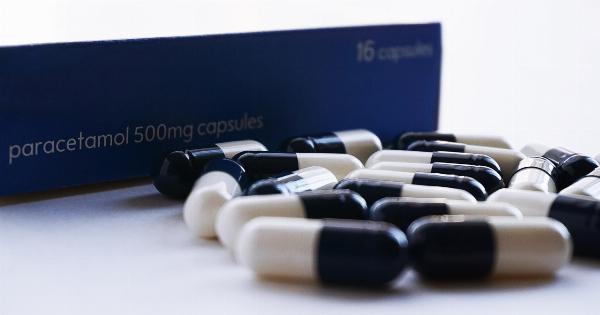Feeling cold is a common bodily sensation, especially during winter months or in cooler climates. However, if you find yourself constantly feeling cold, even in comfortable temperatures, it could be indicative of an underlying health issue.
In this article, we will explore various potential causes of feeling cold and how to address them.
Thyroid Dysfunction
The thyroid gland is responsible for regulating metabolic processes in the body, including temperature regulation.
Hypothyroidism, or an underactive thyroid, can cause a decrease in the production and secretion of thyroid hormones, leading to a slower metabolism and cooler body temperature. Other symptoms of hypothyroidism include fatigue, weight gain, and dry skin. If you suspect you may have hypothyroidism, consult with your medical provider for testing and treatment options.
Anemia
Anemia is a condition characterized by a low red blood cell count and decreased oxygen-carrying capacity in the blood.
This can cause feelings of coldness, as the body struggles to efficiently regulate temperature due to decreased blood flow and oxygen delivery. Other symptoms of anemia may include fatigue, weakness, and shortness of breath. Treatment for anemia depends on the underlying cause and may include iron supplementation or blood transfusions.
Raynaud’s Disease
Raynaud’s disease is a condition in which blood vessels in the hands and feet constrict, limiting blood flow and causing them to feel cold and numb. This can be triggered by cold temperatures, stress, or certain medications.
Symptoms may also include color changes in the affected areas, such as white or blue discoloration. Treatment may include avoiding triggers, keeping warm, and medication to help relax blood vessels.
Poor Circulation
Poor circulation can also contribute to feeling cold, as reduced blood flow can limit heat delivery throughout the body. This can be caused by various factors, including a sedentary lifestyle, smoking, and certain medical conditions.
Other symptoms may include swelling, numbness, and tingling in the affected areas. Treatment may involve lifestyle changes such as increasing physical activity and quitting smoking, as well as medical interventions like medication or surgery.
Vitamin Deficiency
Vitamins play an essential role in many bodily processes, including energy production and immune function.
Deficiencies in certain vitamins, such as vitamin B12 and vitamin D, can contribute to feeling cold and other symptoms such as fatigue and weakness. Consuming a balanced diet and supplementing as needed can help address vitamin deficiencies and improve overall health.
Low Body Fat
Body fat plays a crucial role in insulation and temperature regulation. Individuals with low body fat percentages may feel colder than those with higher percentages, as they lack the insulation provided by adipose tissue.
While low body fat percentages may be desirable for some, it is important to ensure adequate caloric intake and consider the potential health implications of a low body fat percentage.
Anxiety and Stress
Anxiety and stress can also contribute to feeling cold, as they activate the body’s fight or flight response and cause blood vessels to constrict. This can limit blood flow to the extremities and cause feelings of coldness and numbness.
Managing stress and anxiety through methods such as exercise, meditation, and therapy can help alleviate symptoms and improve overall health.
Dehydration
Dehydration can contribute to feeling cold, as it can lead to decreased blood volume and reduced circulation. Adequate hydration is essential for many bodily processes, including temperature regulation.
Drinking plenty of water and consuming fluids throughout the day can help prevent dehydration and the associated symptoms.
Poor Sleep
Poor sleep can contribute to feeling cold, as sleep is essential for many bodily processes, including hormone regulation and immune function.
Inadequate or poor-quality sleep can lead to decreased metabolism and energy production, contributing to feelings of coldness. Improving sleep habits and addressing any underlying sleep disorders can help alleviate symptoms and improve overall health.
Infections and Illnesses
Infections and illnesses such as the flu or pneumonia can also contribute to feeling cold, as they activate the immune system and cause the body to divert energy towards fighting off the infection.
Other symptoms may include fever, fatigue, and body aches. Treating the underlying illness and addressing symptoms with rest and medication as needed can help alleviate symptoms and promote recovery.































